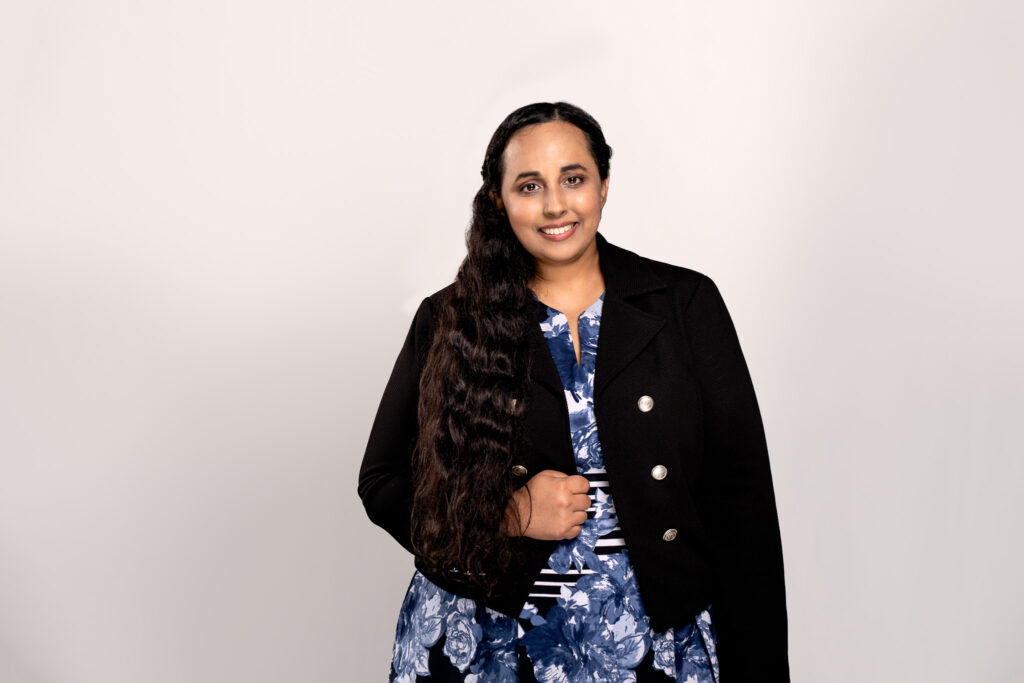
[tta_listen_btn listen_text="Click to listen to this story" pause_text="Pause" resume_text="Resume" replay_text="Replay" start_text="Start" stop_text="Stop"]
Sana Maqsood, an assistant professor in the Department of Electrical Engineering & Computer Science at York University’s Lassonde School of Engineering, has developed a web-based game to educate students in grades 6 to 8 about cybersecurity, privacy and digital literacy issues.

Maqsood’s game, A Day in the Life of the Jos, takes users through a series of decision-making scenarios encountered by two relatable characters who are highly active on social media. Each scenario addresses online challenges that students may face in the real world, such as cyberbullying, misinformation and privacy violations. As users decide how to respond to the encountered scenarios, they are provided with the results and consequences of their choices, as well as informative feedback and guidance on the best approaches to future situations.
In collaboration with a team of digital literacy experts, teachers and researchers, A Day in the Life of the Jos was created during Maqsood’s PhD fellowship with MediaSmarts, a non-profit organization focused on digital and media literacy.
“Elementary schools were using an outdated quiz tool for digital literacy that was developed all the way back in the year 2000,” says Maqsood. “This motivated the entire project. We wanted to create something that was more engaging and relevant for students today.”
Since its creation, four empirical user studies have proven A Day in the Life of the Jos to be educationally effective and engaging for both students and teachers, leading to its successful adoption in 550 schools across Canada.
The project is representative of Maqsood’s ongoing work exploring the use of games to elevate traditional teaching methods and improve student learning experiences.
“Gamification is very effective for teaching children,” explains Maqsood, because using educational games allows learners to develop critical thinking and problem-solving skills and increase knowledge retention of complex concepts.
Next, Maqsood wants to focus on developing educational games on a range of other topics, and for a range of users – including students from low socio-economic households that may not have access to progressive technology, thereby aiming to remove barriers and provide supportive tools for education. Some of these tools include creative board games that are entirely developed by her research team.
Maqsood is also pursuing ongoing research contributing to shaping the future of teaching in K to 12 institutions through active collaboration with Lassonde’s k2i academy throughout Summer 2023, working with a group of high school students exploring a research question related to educational games.
To advance her work, Maqsood is currently recruiting undergraduate and graduate students who are interested in human-centred security and privacy. To learn more, contact smaqsood@yorku.ca.
